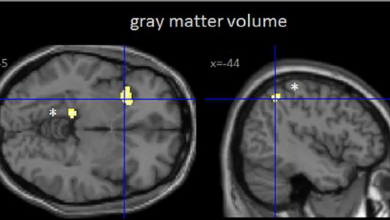What is Critical thinking and how we can use as tool for decision making?
Critical thinking is a tool that we use for better decision making. Critical thinking can make a difference in your life and business.
Business decision:
Everyday at work we take daily decision, I don’t mean ordering a Pizza or Sushi for lunch break. We deal with important decision, scheduling a meeting with client, sending a report, or having a meeting with the team to align.
Picking up the right decision help making a good impression in you position or hitting your targets
Imagine Nokia and Motorola switching quickly to smart phone they were able to keep their leadership position in mobile phone world.
Imagine Skype rejecting Microsoft offer to buy them, they probably will end up with poor results similar to zoom.
For similar decision there is a full process that determine the success or failure of that decision. Well this process is behind every decision we make.
What is critical thinking:
Critical thinking is an intellectual process where we applies, analyses, synthesizes, and evaluate information using observance, experience, reflection, reasoning and communication. Critical thinking forms our personal belief system.
Critical thinking is formed of two steps
-Processing skills of a set of information through reasoning, reflection and questioning,
-experience and process skills to go through the information through reasoning, reflection and questioning.
All of this to reach a conclusion.
It is a cycle where you go from one step to the other and repeat until you make a decision.
Critical thinking for decision making
Decision making and critical thinking are connected. In every decision making you can decide to wetherer use critical thinking or flip a coin or use your gut to find the right option.
Critical thinking starts with processing available information and data about a topic and form your own opinion and decide.
Benefit of critical thinking
Critical thinking encourages curiosity to understand ourselves and the world around us.
Critical thinking enhances creativity, critical thinkers use their imagination to see more deeply and beyond.
Critical thinking improves problem solving skills, critical thinkers have to find answer to problems.
Critical thinking promotes independence, it feels better taking decision yourself rather than letting others take decision for you.
Finally critical thinking is a skill that you use it or not based on the situation. You don’t need always to use. Taking decision using this skill is much better than using emotion, lack of information or your gut.
Components of critical thinking:
We will now dive deeper in critical thinking and see its different components. We would like to avoid omitting any steps during this process.
Perception: This looks like a filter system, you choose which information is useful in this process.
Assumptions: some people decide based on assumptions, only however assumptions are just a component of the full process of critical thinking. Assumption can reinforce our current belief or perceptions.
Emotion: as human being our emotion interfere in this process.
Language: language can complicates or facilitates critical thinking, also body language.
Logic: use induction and deduction reasoning. Deduction reasoning uses facts and supported conclusions; induction reasoning uses hypothesis, analogies and probability.
These are all the building blocks of critical thinking.
Critical thinking barriers:
Internal barriers
Ego is one of the barriers we create in the way of critical thinking. Using our ego we think only for ourselves and not others. This way we see one side of the problem.
Monotony at work: this environment does not support critical thinking.
Personal Bias: This Bias blocks critical thinking component like logical reasoning.
Fear: Fear can block our critical thinking. Fear can be paralyzing. To overcome fear we have to see opportunities on the other side of the fear.
External barriers
Group thinking: Relying on group thinking rather than using our own critical thinking.
Social conditioning: Stereotyping people around us leads to unwanted decisions.
Pressure and overload: reducing responsibilities and pressure will allow us to have more time for critical thinking. Work smarter and reduce the workload.



